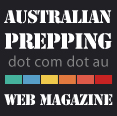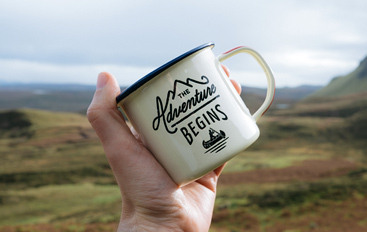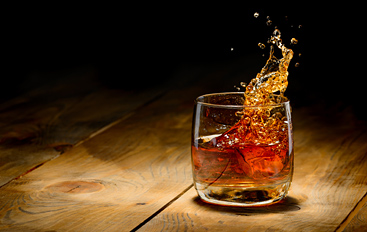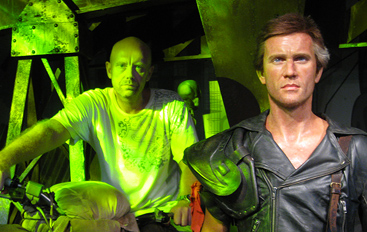
Even as a Child You Can Begin Prepping - Secretly if Needed
NOTICE: This website is still quite new!
A few things don't work yet, and some of the
posts are incomplete. See here for more about this.
When I was eight or nine, my father told me that society was going to collapse in the first part of the next century — but it would be okay, because I could learn to survive in the bush. He grew up on a farm about 10 miles (16 kilometres) from the German border in the Nazi-occupied Netherlands, and saw a lot of things. And had a lot of stories. And knew the value of having basic items like food. Around 20,000 people died due to lack of food in his country during the Dutch famine of the WWII years. (Wikipedia link to the Dutch Famine of 1944-45).
So my father gets the credit for not only my early interest in prepping, but also the general idea that there may not always be the things that most people in the modern Western countries expect to just be there, as a normal part of life.
He would talk about keeping some food stored away, in secret, as if it was a normal thing to do as a child. It was interesting that would often put it in the context of being a child. I guess because he was around that age himself when the Nazi occupation and famine were all around him. Not having the internet to research thing on, much of what he said and did was just based on experience, and ideas, and things he'd heard from others, and seen himself in the 1940s.
Some of his tips I remember, which I did at times on and off during primary school, were keeping a stash of "high energy, long shelf-life" foods, the main examples I remember being dates and chocolate. I also remember that it was easier to keep the dates stored in my bedroom secretly for longer than the chocolate (which tended to get eaten even when there was no famine, as you can imagine).
It was also important to have water (obviously), so I would keep some in a bottle. Being only 8 or 9 (and again with no internet, or private library of prepping info to learn from) I hadn't thought it through hugely how much water I would really need. And of course it would be much better if my water bottle looked just like the "real" ones they had in the army.
But even then, having some water on hand would be a massive improvement on having none at all, as would happen to millions of people in a really fast collapse of the grid (such as from an EMP).
Ideas for Prepping-Related Things You Could Do As a Child
Here's a few ideas, I'll fix this page up more later when there's time (like most of the pages).
- Learn as much as you can. Read websites, watch videos (e.g. on YouTube). Read books (which you can borrow or buy). Depending on the level of interest of other family members, you may be able to ask and be given things for Christmas and/or birthday presents.
- Be aware of how much relatively free time most children (at least in well-off modern countries, and perhaps in others also) have, compared to what most adults have. This is a really massive advantage.
- Think long-term. What would you need in say 5 or 10 or 15 or 20 years time, assuming there was to be a collapse of society? Where would you want to be living? What kind of things would you need? (e.g. food, water, being far away from places with millions of people without much food or water, etc.)
- Depending on where you live there will be a huge difference in things you can do. If you live on a farm or near bushland, or have a decent backyard, there will be options that aren't there if you live in a small flat or townhouse in the city.
- If you get input into where your family goes for holidays, you could suggest things like farm-stays where you can experience some of rural life, where food is produced. Especially the low-tech "back to nature" type of places (which are the ones more likely to have places for tourist/holiday visitors, rather than the massive industrial farms which rely a lot on huge inputs of modern technology).
- Learn about plants and animals, especially ones that are useful/productive for humans. This will be approximately a zillion times more useful in the long run than learning thousands of fine details 1000 different types of Pokemon™ (for example).
- Go camping if possible, if your family is into that, or perhaps you have friends or relatives (who you trust) and can go with.
- See what practical things you can do in real life. Even something as basic as growing a bean seed in a glass with damp paper (so you can watch it germinate and the new plant begin to grow out the seed, through the sides of the glass, over a few days) can teach you a lot and stay in your mind all your life.
- Perhaps you can have a small area of backyard, that's now lawn perhaps (even), to try growing a garden in. Or even just get more involved with the maintenance and gardening that may already be getting done.
- Obviously using gardening tools (and many other tools) can be dangerous, so it's very very important to have some clue about what safety precautions need to be taken. You may be able to learn these things from older relatives (or friends perhaps), and here also you can learn a lot from the internet.
- See what animals you can have at home. There's a huge variety of possibilities. Not every child in modern society can have their own horse, or cow... or even sheep or goat... or even dog or cat. What about something smaller, like guinea pigs, etc... See if you can think of anything. Learning how to keep and look after animals is a great prepping skill to have.
- See what gadgets you can collect. You can buy a lot of things very cheap, and not all of them are junk.
- I'll add more to this page later... but think about how you can use your time, and think of all the years you have ahead of you.
Some Vaguely-Prepping-Related Things I Used To Do As a Child
This next list (which is not listed in any order of importance) consists of things I did as a child, that now seem in some way helpful for prepping. Not every child can get to do all these things. Some can do far more than I did, and others will have little chance to do most of these things. Don't be worried about that. The main thing is just to be interested, and spend time learning and doing things that will eventually be useful.
- Keeping a store of food hidden somewhere (usually somewhere in my bedroom), like dates or chocolate (as mentioned above on this page).
- Spending time playing outside, especially in the local bush (which was right behind my house).
- Learning about camping and "bushcraft".
- Making bows and arrows. The bows were very basic, and didn't shoot with enough power to really be useful (e.g. for hunting), but it was a lot of fun and I learned a lot from it.
- Making other types of tools, like stone axes (which were more like clubs really).
- Generally making things out of wood (I had access to a lot of carpentry tools and spare bits of wood, and other gear, thanks to my father).
- My first paid job was lawnmowing and gardening for an old lady who lived a few houses down, when I was 9. I used a full size adult lawnmower (though certainly not every nine-year old now would be safe using one, especially at first, and especially unupervised). I used to wheel it down the road from my house to hers, which was about 4 or 5 houses away.
- Making other kinds of "primitive weapons" such as slingshots, and a blow-dart "gun". Obviously if not done respectfully and carefully, this could cause a lot of trouble in some situations, so this may not be for everyone.
- Generally doing things like "Ninja training", "Jedi training", playing "Cowboys and Indians [is that even allowed now?], and "Spy training".
- I had a childrens book called "The Spy's Guidebook" (or something very close to that title) which had a huge amount of things to do in it, like how to follow tracks and trails, how to make and use secret codes, disguises, all kinds of fun things about learning how to be a "spy".
- There was a cave a few hundred metres from my house (which seemed like longer than that through the bush), which had sparkly, glittery specks in the rocks there. Obviously, as a 7-8 year-old, I thought that perhaps this shiny material might be gold. So that was named the "Gold Mine Cave". Which of course meant that the gold there had to be mined. After bringing the rocks home, Dad made a pretty good working version of a sluice box out of wood, which was used to extract the "gold" from the rocks (after crushing them up into powder/sand). Again, don't stress too much if you don't have the chance to have your own gold mine cave or sluice box.
- Making tree-houses in the bush behind/near our house. This may be illegal now (a lot of things are illegal now), especially if you're near a national park.
- Playing with toys where you made mechanical things, like with wheels and axles and gears and so on. I'll try and find some links.
- Playing with electronics toys where you learned how basic electrical devices worked.
- About the one "sciencey" thing I never got as a child, but really wanted, was a Chemistry set. Dad thought it totally fine for me to be using an adult's belt sander or power drill (or lawnmower) from about age 8-10 — but he was afraid that a Chemistry set in my hands would be dangerous. I guess it's something he didn't know much about himself and was therefore overly cautious of (comparatively).
- Playing with "walkie talkies", as I got older (like primary school age) I even got ones that actually worked, and weren't just empty plastic-box toys like the ones I had when I was 4-6.
- Helping do food gardening, there were times on and off when Dad (and later my Grandfather, when he lived with us) had a vegie garden.
- Keeping animals. Some of the animals we had (on and off) were dogs, cats, fish, turtles, mice (thanks to my brother), silkworms (thanks to having a mulberry tree), lizards (which were captured wild, unfortunately for them, and never lived very long), beetles, ants (I had a few different "ant farms", again unfortunately for the ants who were involved), tadpoles... I might think of others later.
- Being generally interested in how to survive in the bush.
- Learning about navigation, playing with (and using) compasses and maps. This was years before there was anything like a modern GPS or Google Maps/Earth.
- Learning how to tell direction from the sun and moon and stars. Learning the brightest constellations (like the Southern Cross, Orion, Scorpio and Saggitarius, etc,. and where they would be in the sky at different times of year, and how to tell direction from them). Learning the phases of the moon and where the moon would be in the sky, compared to where the sun was, and what phase it would be in, at differernt times of the lunar month.
- Having a basic idea of what water you could drink and what was dangerous/polluted.
- This last one may not be the best one to start with, and may not be possible at all for many, but I used to play with fire a lot. As in make fires, usually campfire-style ones, either in the backyard or in the bush not far from home. One time ever there was about 4-5 boys, aged about 9, and a fire we made had definitely gotten away from us. It started to burn up the trunk of a large gum tree, and we were pretty worried. Dad had to come and put it out, and fortunately he was around and not that far away or it would have turned into a small bushfire. We didn't make fires much (or at all) in the hot summer months.
- In fact generally there was a rule that in the colder parts of the year, when the snakes were hibernating, I was allowed to go pretty much anywhere within walking distance. But in the hotter months (especially summer) there were a lot of restrictions on where I was allowed to go in the bush, with no adults present, in case of snakes. Things seem a lot different now, and many people have commented on how the bush (or "woods" as they would say in other countries) would be full of kids after school in the afternoons, and on weekends, and now there's no-one there at all, and the old trails are almost gone, and the kids are all in their backyards (at best) or more usually inside in front of a screen.
I'll add more on this and other pages in future...
Books to Help Quit Drinking
Here's a selection of books to help to quit drinking, or to slow down on drinking. I'll write up better explanations as I get time... The first one is the one that helped me the...
How and Why I Quit Drinking
Since I have enough experience (and success) with this topic to easily write a whole book about it, or even a series of books, this first web page about how to quit drinking is going...

 Welcome to Prepping.com.au, the new web magazine.
Welcome to Prepping.com.au, the new web magazine.
 What is Prepping? A guide for normal people to get started.
What is Prepping? A guide for normal people to get started.
 How to use this site. When all else fails, read the instructions.
How to use this site. When all else fails, read the instructions.
 This is your mission, should you choose to accept it.
This is your mission, should you choose to accept it.








